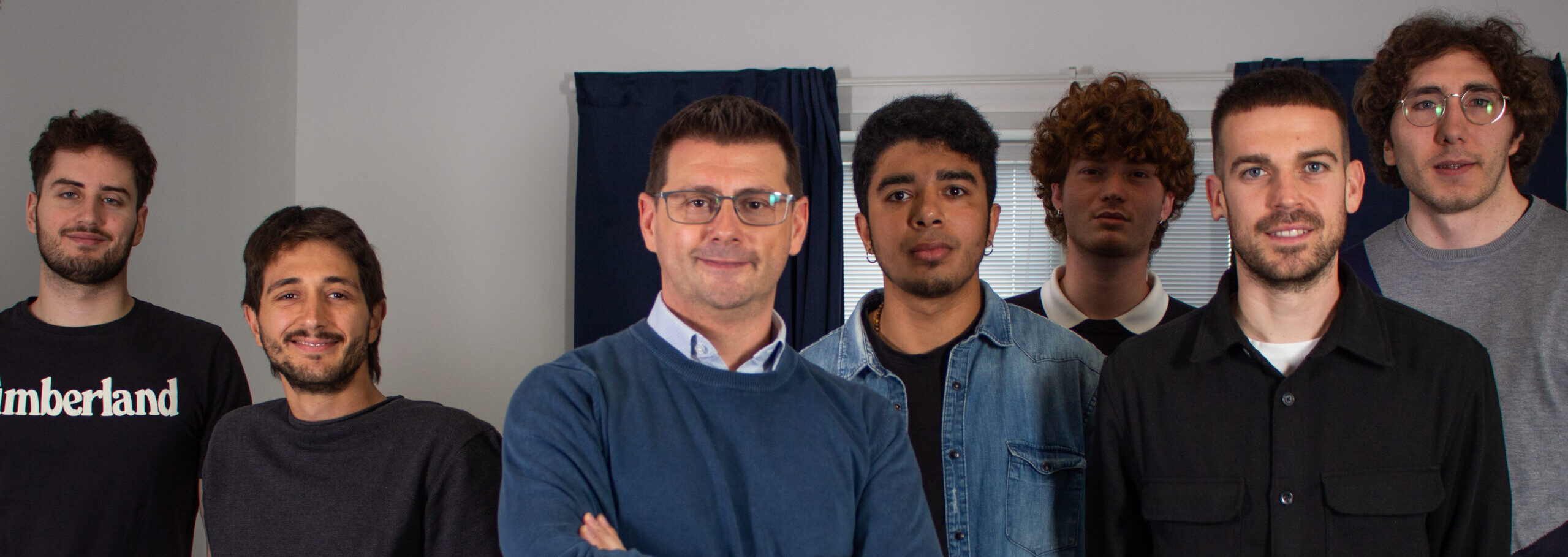

Francesco Lescai, Ph.D., EDBT
Associate Professor of Bioinformatics
Department of Biology and Biotechnology
University of Pavia
Francesco has a M.Sc. in Medical Biotechnology and a Ph.D. in Experimental Pathology. He developed an expertise in Bioinformatics, Genomics and Statistical Genetics.
He previously worked at UCL, where he first developed the analysis pipelines for UCL Genomics, the NGS facility of the Campus. He then led the Bioinformatics at the Centre for Translational Genomics, a partnership between ULC Institute of Child Health and Great Ormond Street Hospital. He moved to Aarhus University as Associate Professor of Genomics and Bioinformatics, where he led the Bioinformatics analyses in Bipolar Disorder and Schizophrenia for the iPSYCH consortium.
Later, he worked for two years in QIAGEN Bioinformatics, as part of the Global Product Management team for the CLC portfolio.
Before joining the University of Pavia as Associate Professor of Bioinformatics, Francesco worked as Head of Bioinformatics for the Medicines and Healthcare products Regulatory Agency in UK.
More information on Francesco’s personal website: http://lescai.eu
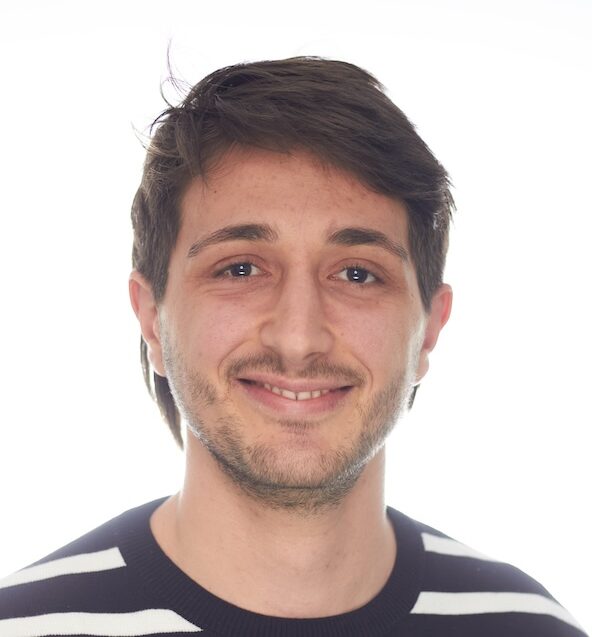
Davide Bagordo
Research Fellow in Computational Genomics
Davide Bagordo has a Bachelor degree in Biotechnology, awarded at the University of Pavia. He graduated in the Master’s Degree in “Advanced Biotechnology”, with an internship in our Lab. His thesis project, entitled “Computational Genomics approaches to study rare-variants mutational load in Joubert Syndrome“, focused on the mutational load of protein-truncating variants (PTV) in the Joubert Syndrome.
He joined the Computational Genomics laboratory in 2024, to work on a project entitled “Computational Genomics strategies for the analysis and in-silico design of immunotherapies”, focused on the development of pipelines for the characterisation of the adaptive immune receptor repertoire with innovative methods.

Cezar Grigorean
M.Sc. Student in Advanced and Experimental Biology
Intern in Computational Genomics
Cezar Grigorean has been awarded his B.Sc in Biology. The Degree is characterised by a strong focus on several biological disciplines, especially Genetics, Biochemistry and Molecular Biology. Cezar has always been interested in Informatics: for this reason, he decided to combine this subject with his studies and pursue an internship in Bioinformatics, thus applying Data Science to the study of Genomics.
During his B.Sc. internship he developed a Shiny app to filter and prioritise genetic variants in VCF files, and ease some of the most pressing challenges professionals in medical genetics experience, when interpreting NGS results for clinical purposes.
His M.Sc. project is dedicated to the development and release of a pipeline to make variants simulation accessible and standardised.
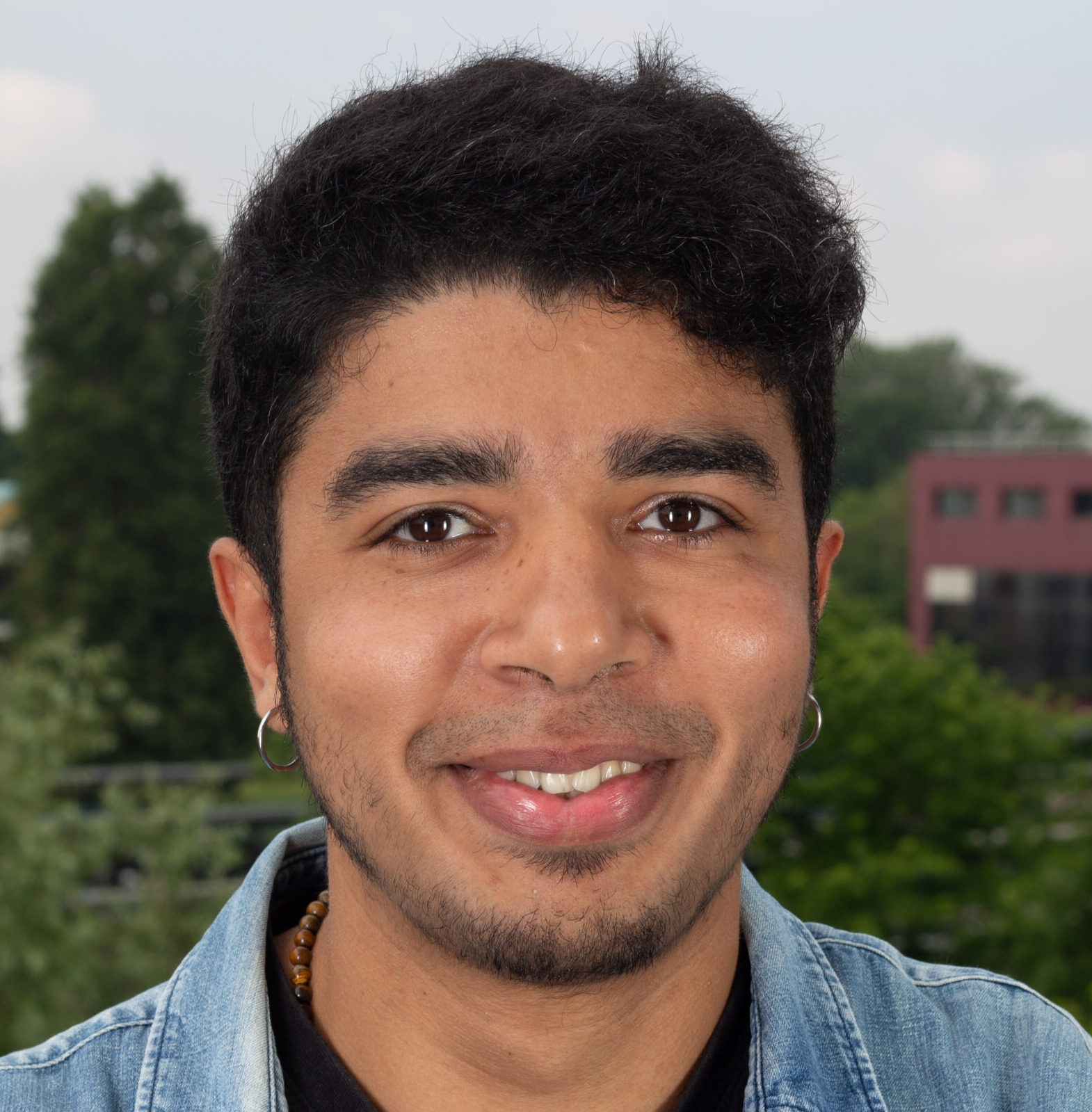
Said Ahmed
B.Sc. Student in Biotechnology
Intern in Computational Genomics
Said Ahmed is a final-year Biotechnology student with a background in the IT industry, where he developed a strong passion for the intersection of informatics and biology. To bridge his professional experience with his academic studies, Said decided to pursue an internship in bioinformatics.
During his internship, Said’s project focuses on simulating human genomic data, encompassing both main-effect and epistatic variants associated with pathological phenotypes. The aim is to generate realistic patient genotype datasets that closely reflect real-world data in terms of allele frequency, variant count, haplotype structure, and variant annotation. These datasets will be used to evaluate deep learning models designed to detect complex interactions between genetic variants.
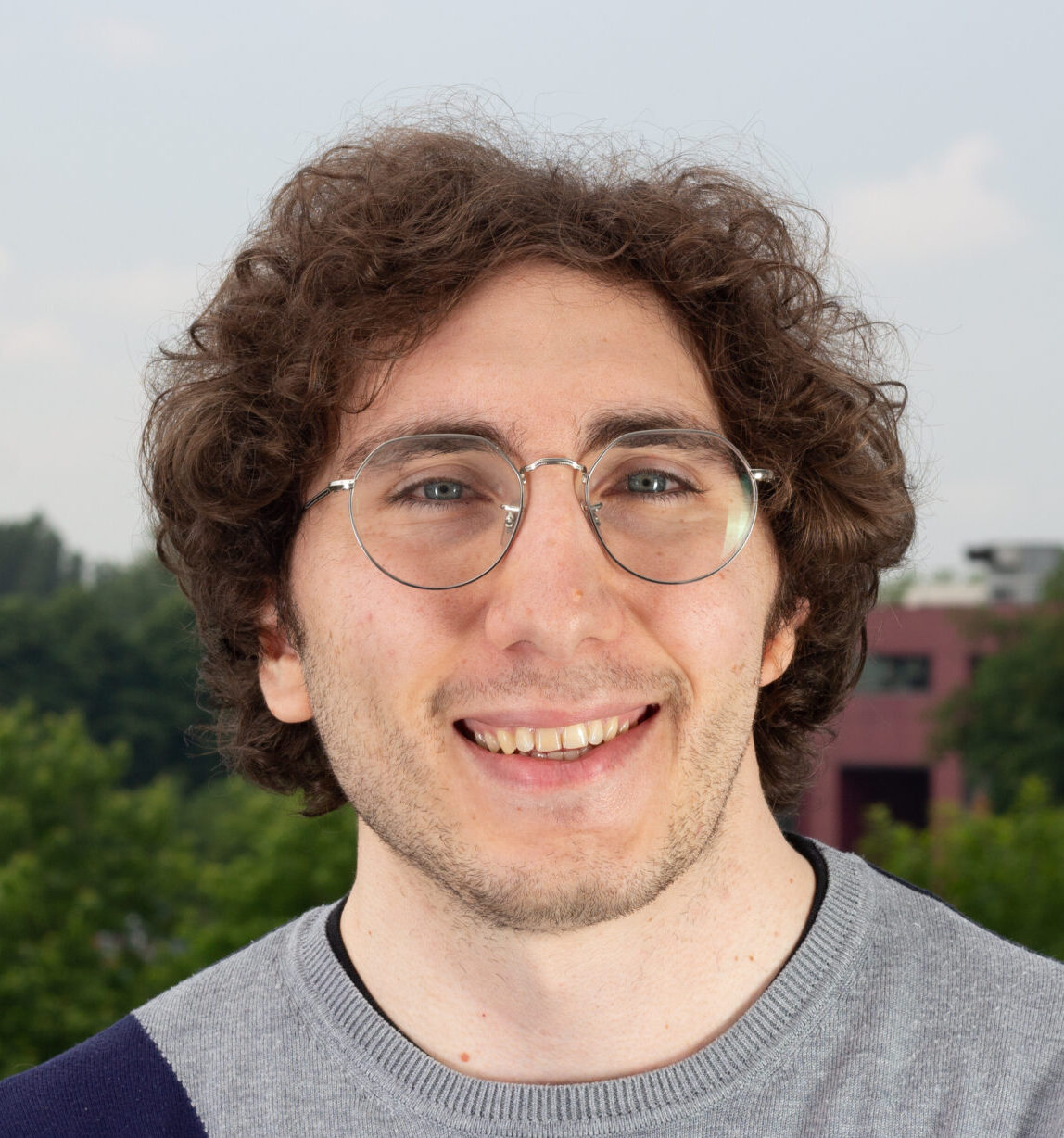
Nicola Martelossi
M.Sc. Student in Molecular Biology and Genetics
Intern in Computational Genomics
Nicola Martelossi graduated at the University of Trieste with a Bachelor degree in Biotechnology, where he contributed to the publication of the 2021 paper “Taxonomic Distribution and Molecular Evolution of Mytilectins” in Marine Drugs.
With a deep interest in applications of bioinformatics to the medical field, he is currently enrolled in the second year of the Master’s Degree in “Molecular and Digital Biology” at the University of Pavia.
To work on his thesis project, he joined our Computational Genomics laboratory in 2024. His internship for the Immuno-Hub project, focuses on nanobodies repertoire analysis for the characterisation of the adaptive immune receptor, relying on advanced algorithms to identify CDR motifs and providing analytical solutions.


Alumni

Gerardo Acquaviva
M.Sc. in Molecular Biology and Genetics
Gerardo Acquaviva has a Bachelor degree in Biological Sciences awarded by the University of Bologna, with a thesis in microbiology entitled “The molecular mechanisms underlying the development of microbial biofilms”.
He graduated in the Master’s degree in “Molecular biology and genetics” at the university of Pavia with an internship in Bioinformatics, a research area which has captured his interest.
His internship project focused on the use of network analysis methods, to uncover genetic determinants underlying inflammatory mechanisms in common to different high-impact diseases.
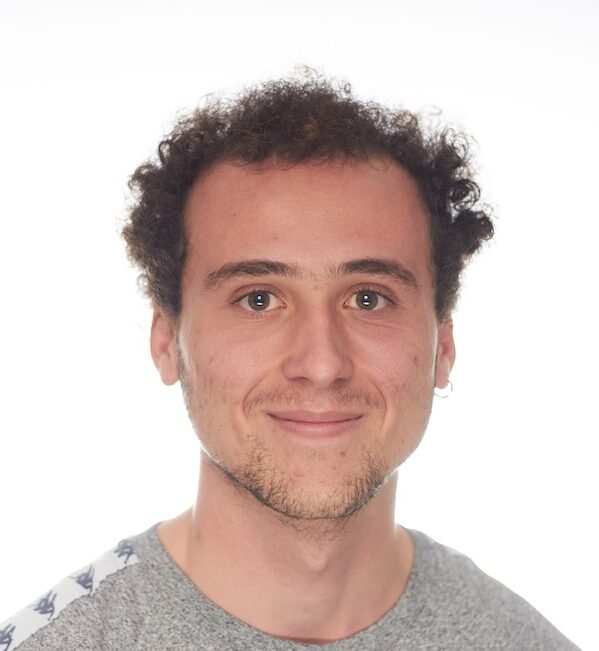
Alessandro Bernardi
B.Sc. Student in Biotechnology
Alessandro has been awarded his B.Sc. in Biotechnology and showed a strong interest for informatics. Since November 2023, he has been preparing to join the Computational Genomics Lab, where he worked on his thesis project. His research focused on developing a scoring method to prioritise genetic variants based on their expression in tissues affected by disease.
The goal of the project was to create a tool that narrows down the list of genetic variants to be investigated for clinical diagnosis, helping to streamline the diagnostic process and improve precision in identifying disease-related variants.

Lorenzo Sola
Research Fellow in Computational Genomics
Lorenzo has a M.Sc. in Molecular Biology and Genetics and soon a Ph.D. in Genetics, Molecular and Cellular Biology. His studies were focused on the analysis of repetitive elements in the human and mammalian genomes through the integration of cellular, molecular biology and bioinformatics techniques. During this period, he was really fascinated by the study of biology through the decoding of the information hidden in high-throughput data and he developed a strong interest in computer science.
In 2024, he joined the Computational Genomics laboratory at the University of Pavia, where he works on Alzheimer’s Disease (AD). His project entitled “Omic markers in circulating monocytes for early diagnosis of Alzheimer disease” is focused on the study of prognostic markers of AD utilizing a multi-omics approach, with the final goal of improving the existing diagnostic strategies.

Simone Carpanzano
M.Sc in Neurobiology
Intern in Computational Genomics
Simone has a B.Sc. in Biotechnology, and his studies focused on the application of Biotechnology to medicine. Simone has discovered an interest in Bioinformatics, because it offers an opportunity to integrate the expertise of different disciplines.
For his Bachelor’s thesis, he developed a Nextflow pipeline to investigate horizontal gene transfer from microbial species to the human genome. This work led to his first publication in 2022: “hgtseq: A Standard Pipeline to Study Horizontal Gene Transfer”, published in the International Journal of Molecular Sciences.
He graduated cum laude with an M.Sc. in Neurobiology and conducting his internship in collaboration with Lorenzo on a project entitled “Omic markers in circulating monocytes for early diagnosis of Alzheimer’s disease”. His work focuses on transcriptomic analyses of microglia and peripheral immune cells in the context of Alzheimer’s disease.
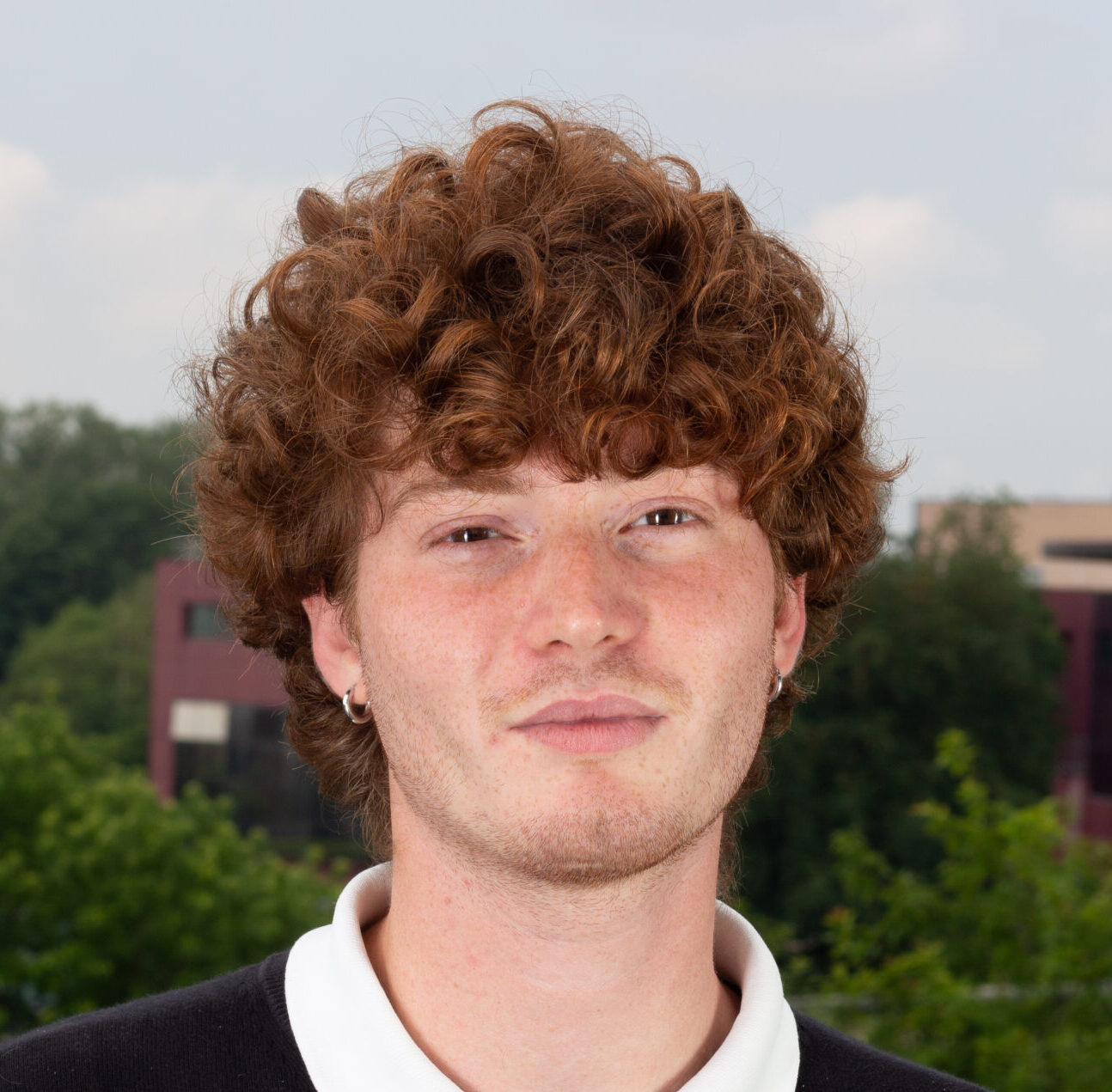
Alessandro Minguzzi
M.Sc. in Molecular Biology and Genetics
Intern in Computational Genomics
Alessandro holds a B.Sc. in Biology awarded at the University of Genova and is currently attending the final year of his M.Sc. in Molecular Biology and Genetics, in the Molecular and Digital Biology curriculum.
Throughout his academic career, he has developed a strong interest in statistics and bioinformatics as tools for investigating human diseases.
He joined the Computational Genomics Lab in 2024 for his thesis project, which focused on a large meta-analysis of transcriptomics data in Multiple Sclerosis, aiming to profile autophagy and potentially uncover new therapeutic targets.
He graduated cum laude in Molecular Biology and Genetics and received a special commendation by the examination board for his academic curriculum.

